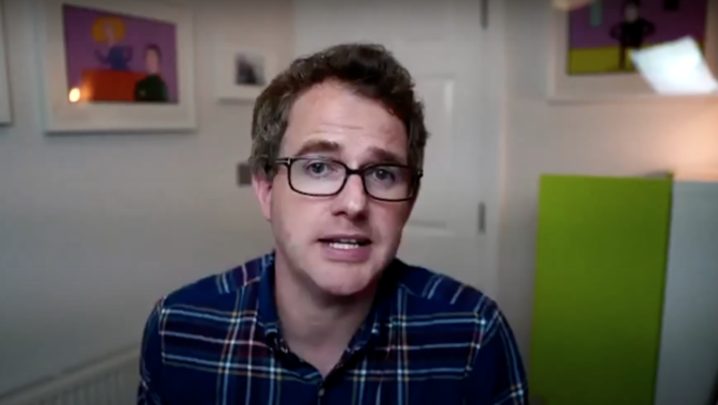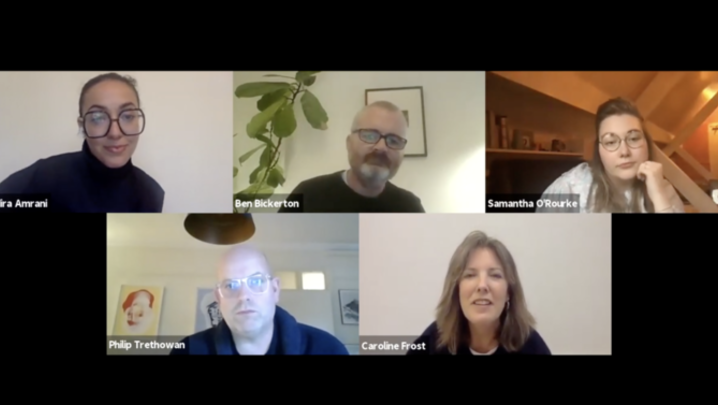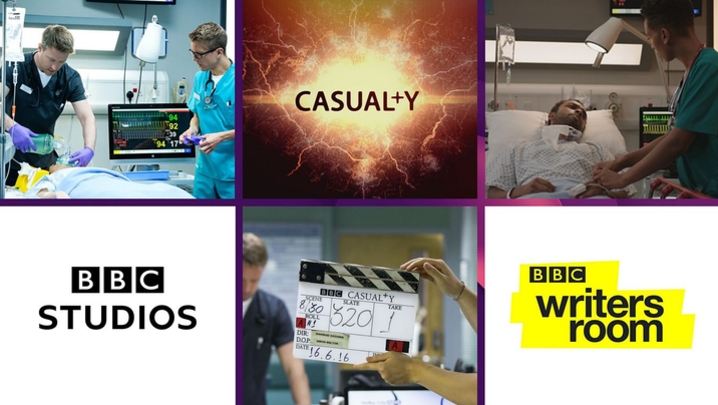People from BAME backgrounds who feel “they don’t fit in” should “keep on banging on the door” if they want to work in TV, recommended Ade Adepitan, the BBC and Channel 4 presenter.
“Don’t hold back,” advised the disabled basketball Paralympic medallist speaking at an RTS Futures webinar.
Adepitan said that he had got into TV by luck: “I didn’t go to uni, I went to the university of life.” His first job in TV was working for a cable station, which, in the early 1990s, was looking for a wheelchair-bound basketball player to appear on screen.
Initially he declined their invitation, but when the station offered him £250 for the gig he seized the chance.
The presenter said it was easier today for newbies to acquire the skills needed to become a TV presenter thanks to smart phones and social media: “You can practise your skills on social media and live stream like I’ve been doing during lockdown.”
Adepitan has never looked back. Forging a life as a presenter, as he and his fellow panellists made clear, requires resilience and determination. “There’s no set path to getting into TV,” he said. “The main thing today is passion.”
His BBC Two series, Africa with Ade Adepitan, took almost two decades to get on air, he said. Commissioners were reluctant to commission a series that defied the stereotype of a continent often depicted negatively and defined only by poverty, corruption and conflict.
Jackie Long, Channel 4’s social affairs editor, stressed that TV needed to do a lot more to address all areas of diversity – race, gender, class and how it treats and represents disabled people.
She recommended that those considering working in TV remain true to themselves – and to avoid doing what she did at the start of her career. “Don’t feel grateful for the opportunities you are given,” advised Long. “Don’t try to be someone else. Be proud of who you are.”
All the contributors agreed that successful presenters had an authentic voice and were themselves in front of the camera.
Anita Rani, a regular presenter of BBC One’s Countryfile, said she had begun her career by working part-time for a local radio station as a 14-year-old.
“I was there at weekends and during school holidays,” she recalled, adding: “Find your own voice, your own tone and make it look effortless, even though you’ve done loads of preparation and are dependent on a team.”
Radio presenter Anna O’Neill, who works as a reporter for BBC London, said an essential quality for being a successful journalist was the ability to spot a story.
“Stories are everywhere – your friends and neighbours have them,” said O’Neill, whose first degree was in Italian and Arabic “You can have all the technical skills, but you still need to be able to spot a story, tell a case history.”
She emphasised the importance of tenacity – and told the RTS how she’d got her first break as a student journalist on Radio 4’s You and Yours.
This was despite the programme’s reluctance to agree to work with her on a story she’d found involving the loss of hundreds of passports. “At first, they said, ‘We’ll give you £50 for your contacts and we’ll do the rest.’”
Persistence paid off and she did the story for You and Yours.
During lockdown – O’Neill is working from home because her son suffers from asthma – she had turned to her immediate neighbourhood for stories and had not come away empty handed.
Asked by the webinar’s chair what was the most powerful story she’d ever covered, O’Neill said it was the Grenfell fire: “It was like a war zone. I was there for three months. Listening to all that tragedy and grief was traumatic.
“I’m still in touch with the contacts I made at Grenfell. It’s important to keep your contacts close to you.”
Rani said she would never forget reporting from India where she had met some of the poorest people on earth. “I can’t express how that makes you feel,” she said. “It alters your perspective on life.”
For Adepitan, encountering war victims in Vietnam poisoned as children by the US’s use of chemical agents, and meeting gay and transgender people in Jamaica forced to live in a storm drain have left lasting impressions on him. “I think about that every day,” he said.
The RTS Futures webinar, ‘The life of a presenter’, was held on 9 June, and chaired and produced by Jasmine Dotiwala, head of youth engagement at the Media Trust.










